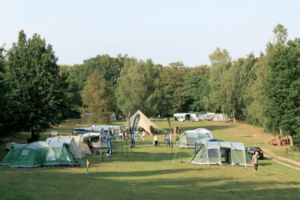News
Gather ‘round the campfire: Danish camping heading for another record in 2022
This article is more than 3 years old.
The Dansk Camping Union predicts that 2022 may surpass last year’s record for camping in the country

Year-round camping will soon be allowed in Denmark as part of a trial, but will is solve the problem? (photo: Dansk Camping Union)
In 2021, more Danes made their way to campsites across the country than ever before. 2022 is on pace to eclipse last year with camping expected to see another record year.
The Dansk Camping Union (DCU), a private interest organisation, says that occupancy rates over the holiday weekend surpassed last year’s numbers, and that July bookings for its 20 campsites are up 28 percent.
Driven outside by the pandemic
Anne-Vibeke Isaksen, the head of DCU, said that the COVID-19 pandemic likely drove the initial surge in Danish camping two summers ago. Since then, people have found other reasons to spend their nights under the stars.
“The Danes have really taken up camping and found out that it is a form of holiday that makes us feel good, but is also practical as we have a lot of camping opportunities right outside our door,” said Isaksen.
READ ALSO: When in Denmark: Embracing a great outdoors swimming with pursuits
Visitors and inflation impact
This year, owing to eased travel restrictions, Isaksen said that an increase in foreign visitors is also contributing to this year’s record-breaking numbers.
In addition, Isaksen attributed inflation and rising fuel prices to the trend, noting that many more people are opting for an affordable camping holiday at home, rather than an expensive trip abroad.
Check out CPH Post’s guide to get some inspiration for some tips to enjoy the outdoors in Denmark.










































